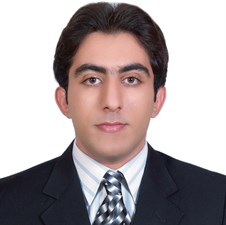 Payman Dehghanian, a Ph.D. student in the Department of Electrical and Computer Engineering at Texas A&M University, was accepted for participation in the Prognostic and Health Management (PHM) Society’s Symposium.
Payman Dehghanian, a Ph.D. student in the Department of Electrical and Computer Engineering at Texas A&M University, was accepted for participation in the Prognostic and Health Management (PHM) Society’s Symposium.
Dehghanian was among 10 awardees nationwide whose application was approved for the PHM symposium scheduled for Oct. 2 in Denver. The doctoral symposium provides an excellent opportunity for graduate students to present their research interests and plans. The students will receive structured guidance from a panel of distinguished researchers, as well as comments from conference participants and fellow students in a collegial setting. The PHM Society will cover all his expenses.
Dehghanian, who is advised by Dr. Mladen Kezunovic, the Eugene E. Webb Professor in the department, is the current leader of the Texas A&M student branch joint chapter of the IEEE PELS-PES-IAS. He received his bachelor's degree from the University of Tehran in 2009 and his master's degree from Sharif University of Technology in 2011, both in electrical engineering. His research interests include power system protection and control, power system reliability, asset management, maintenance scheduling, renewable integration and smart-grid applications.
His recent honors include being selected as a potential future leader by IEEE, receiving the Sigma Xi Grant-in-Aid-of-Research, receiving a 2nd Place Prize for Best Poster Award at the 2016 IEEE Power and Energy Society (PES) Transmission and Distribution (T&D) Conference and Exposition, a research grant scholarship from the American Public Power Association under the Demonstration of Energy and Efficiency Development (DEED) Program, being awarded the Roland and Margaret Prove Southerland Aggie Leader Scholarship for the 2016-2017 academic year and being selected as the IEEE Industry Application Society Electric Safety Workshop 2017 student program chair.
The PHM Society is a non-profit organization dedicated to the advancement of PHM as an engineering discipline. The PHM Society has three basic principles, to provide free and unrestricted access to PHM knowledge, to promote interdisciplinary and international collaboration in PHM and to lead the advancement of PHM as an engineering discipline.